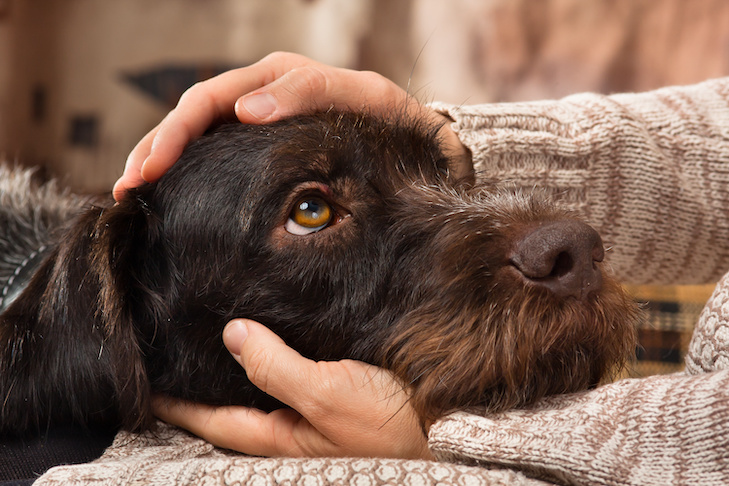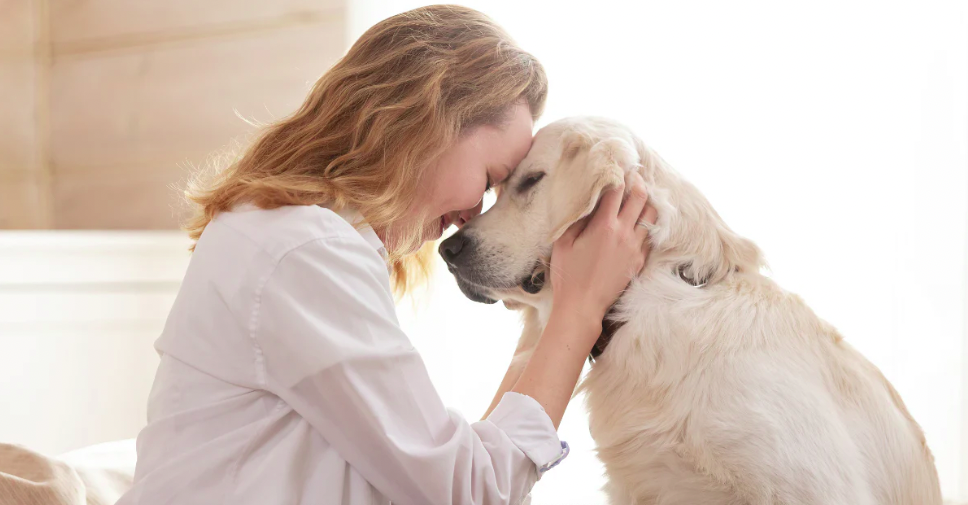Do Dogs Know When You Are Sick

Dogs have long been considered man's best friend, but many people wonder: do dogs know when you are sick? With their incredibly keen senses and close bond with humans, dogs often seem to sense changes in our health and behavior. In this article, we explore what science says about a dog's ability to detect illness and how they respond when their human isn't feeling well.
How Dogs Use Their Strong Sense Of Smell

Dogs possess a highly developed sense of smell—up to 100,000 times more sensitive than humans. This powerful olfactory ability enables them to detect even subtle changes in human body chemistry. When you’re sick, your body releases different odors due to changes in hormones, bacteria, or cellular makeup. This means that your dog may pick up on an illness before you even recognize the symptoms yourself.
Behavioral Changes Dogs Notice in Humans

Besides their sense of smell, dogs are highly attuned to human behavior. They notice when routines change, when you’re moving slower, or if you’re sleeping more than usual. Dogs are observant of facial expressions, tone of voice, and body language. If you're under the weather, your dog might pick up on these signals and act more attentive or protective toward you.
Scientific Studies on Dogs Detecting Illness

Scientific research supports the idea that dogs can detect certain illnesses. Studies have shown dogs can sniff out cancer, diabetes, and even COVID-19 in some cases. These remarkable findings demonstrate how trained or even untrained dogs may sense medical conditions through unique scents or chemical markers emitted by the body, further confirming the question: do dogs know when you are sick? Absolutely—science increasingly says yes.
Dogs' Emotional Response to Human Illness

Dogs are emotional animals and often share strong empathetic ties with their owners. When they detect illness, many dogs respond with increased affection, attentiveness, and concern. They may cuddle more, follow you constantly, or appear anxious. This behavior shows that your illness doesn’t go unnoticed, and your dog may be trying to comfort or watch over you during your time of need.
How Dogs Could Aid in Medical Diagnoses

Beyond comfort, some dogs are trained to be medical alert dogs. These specially trained animals help detect oncoming symptoms for conditions like epilepsy or low blood sugar in diabetes. Based on subtle chemical signals, these dogs let their owners know when something is wrong in time to prevent medical emergencies. This functional use of a dog’s natural ability further affirms that dogs know when you are sick and can even help manage certain conditions.
Untrained Dogs Can Still Sense Illness

While trained dogs have a clear ability to detect illness, household pets don’t need formal education to sense when something is off. Many pet owners report their dogs behaving differently when they’re unwell—becoming more protective, affectionate, or alert. This suggests that even without training, dogs can instinctively detect changes in their owner’s health.
Why Dogs Make Great Emotional Support Animals

Because of their ability to perceive human emotions and states of health, dogs make excellent emotional support animals. If your dog senses that you’re unwell, they might work harder to comfort you, reduce stress, and provide emotional stability. The companionship of a dog can be especially beneficial during periods of illness or recovery, supporting both mental and physical health.
Training Your Dog to Detect Illness

If you're interested in having your dog assist with detecting specific health conditions, professional training is available. Programs focus on teaching dogs to distinguish between normal and abnormal scents linked to particular diseases. While not every dog is suited for this work, breeds like Labradors and German Shepherds have shown great success due to their advanced scent receptors and ability to learn quickly.
So, do dogs know when you are sick? Growing evidence from science and countless personal stories suggest that they absolutely can. Through their heightened senses and emotional intelligence, dogs can often detect illnesses and respond in caring, attentive ways. Whether through smell, behavior observation, or emotional bonding, your dog likely knows when something isn’t quite right—and they’ll do their best to be there for you.

